
How love can lead to happiness
“Love does not consist of gazing at each other, but in looking outward together in the same direction.” Antoine de Saint-Exupéry
Love is the primary positive emotion and can bring us immense happiness according to positivity researcher Barbara Fredrickson. Some even argue that humans are born to love and be loved. But many of us approach love in a way that ultimately brings us unhappiness.
Sometimes we long to be loved so that we can feel whole. We believe that there is someone out there who will complete us. So, we seek a partner who can fill the hole inside or we seek to complete another. It seems we want to merge so that the two becomes one. But this never ends well.
True love doesn’t complete us. True love helps us to grow and become more fully ourselves. This sentiment is beautifully expressed in Shel Silverstein’s classic children’s book The Missing Piece Meets the Big O.
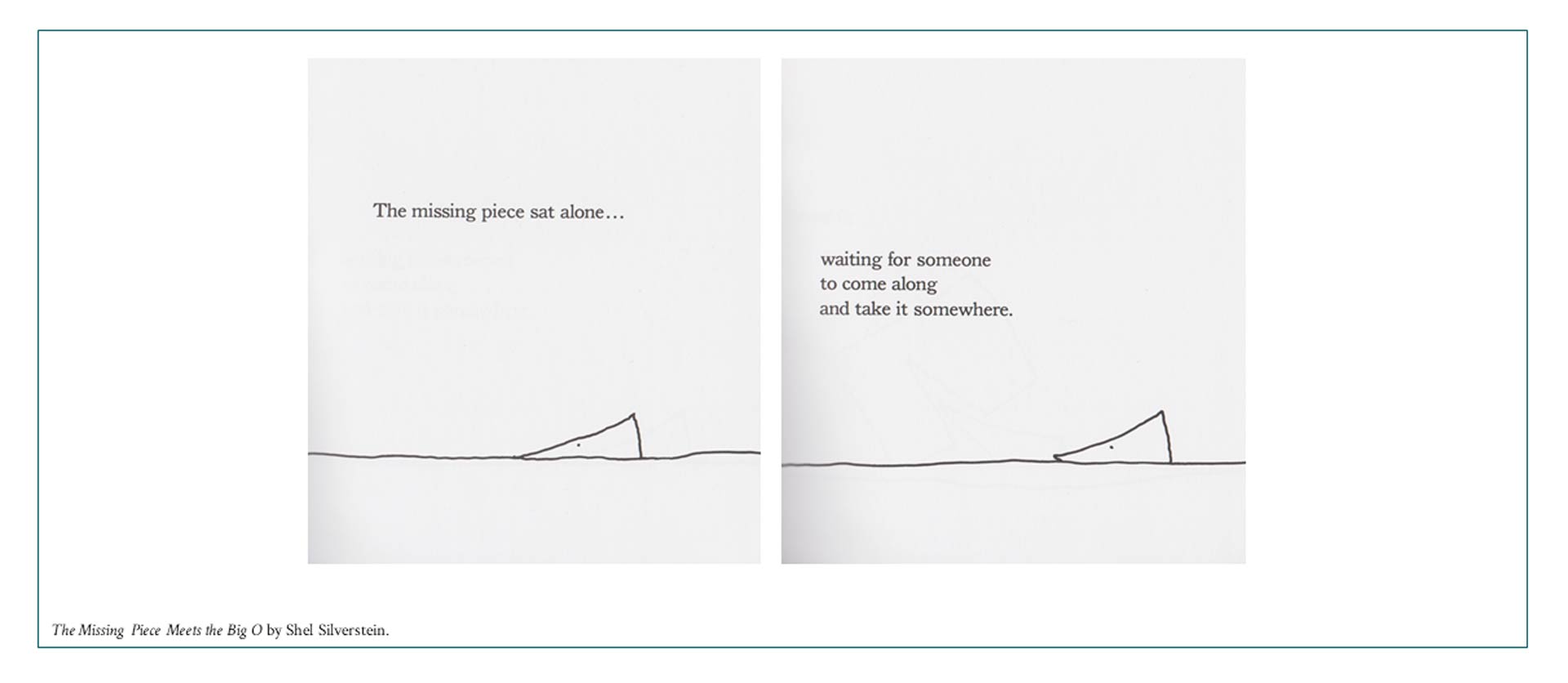
In the book (which is as much for adults as it is for children) a lonely wedge dreams of meeting a big circle into which it can fit so that together they can roll somewhere. In its quest for wholeness, the missing piece encounters a number of shapes, but none are quite right – some are missing too many pieces, others have too many pieces, some roll by without noticing, others put it on a pedestal and leave it there. In each of these shapes we recognise ourselves or partners we have had – the person who seems irreparably damaged, the person who is way too complicated, the narcissist who never sees us, and the one who worships us (but also never really sees us).
Unsuccessful, the missing piece tries to change itself to attract just the right shape, but it doesn’t work out. Finally, the missing pieces meets a shape that seems perfect; they fit together just right. But then something happens. The missing pieces starts to grow. That’s what love does. In Love 2.0, Barbara Friedrickson writes that the more we experience love the more we open up and grow, becoming more attuned, resilient, effective and happier.
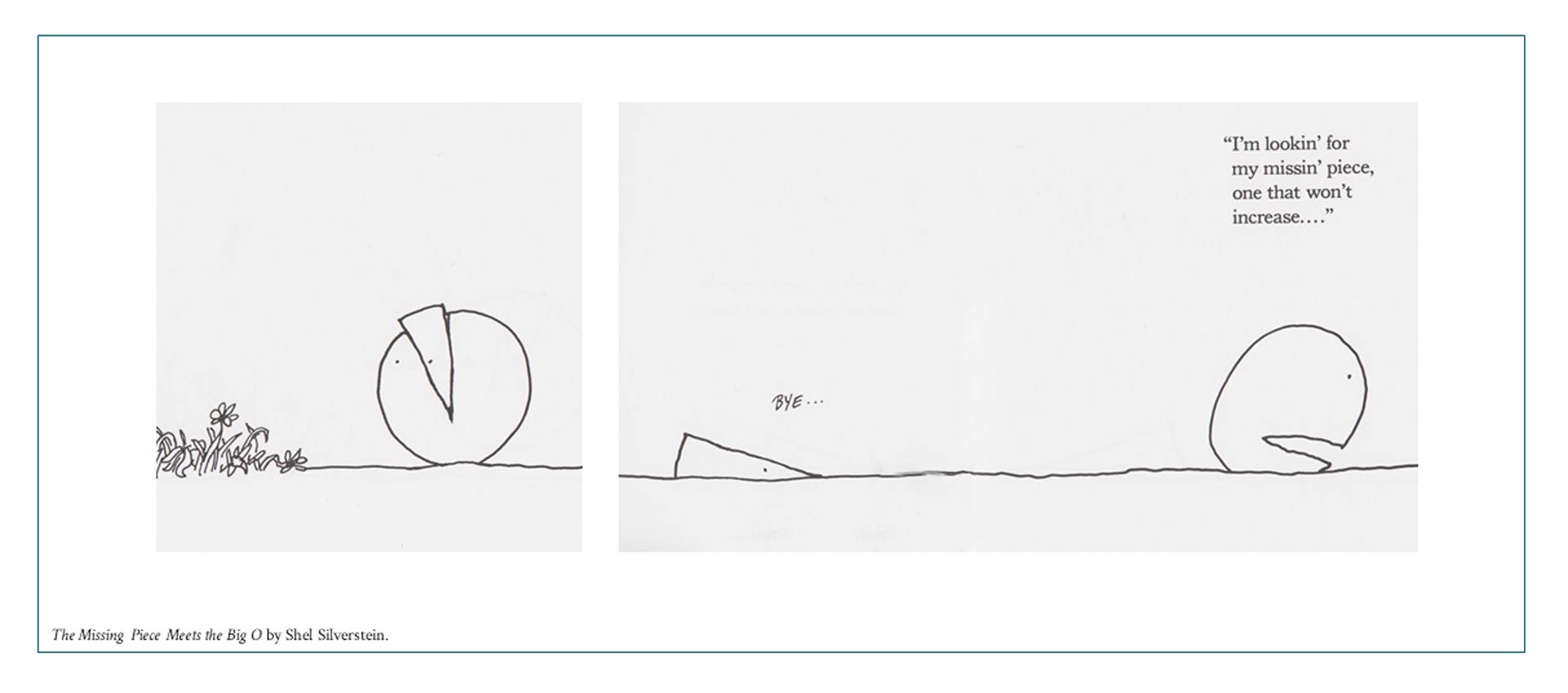
Unfortunately, although the missing piece grows, the circle doesn’t, and it does not wish to. As in any relationship where one partner outgrows the other, they must part ways. The missing piece is once again alone and the shape rolls on looking for a piece that won’t grow.
At last a shape comes along that is completely different. It introduces itself as the Big O.
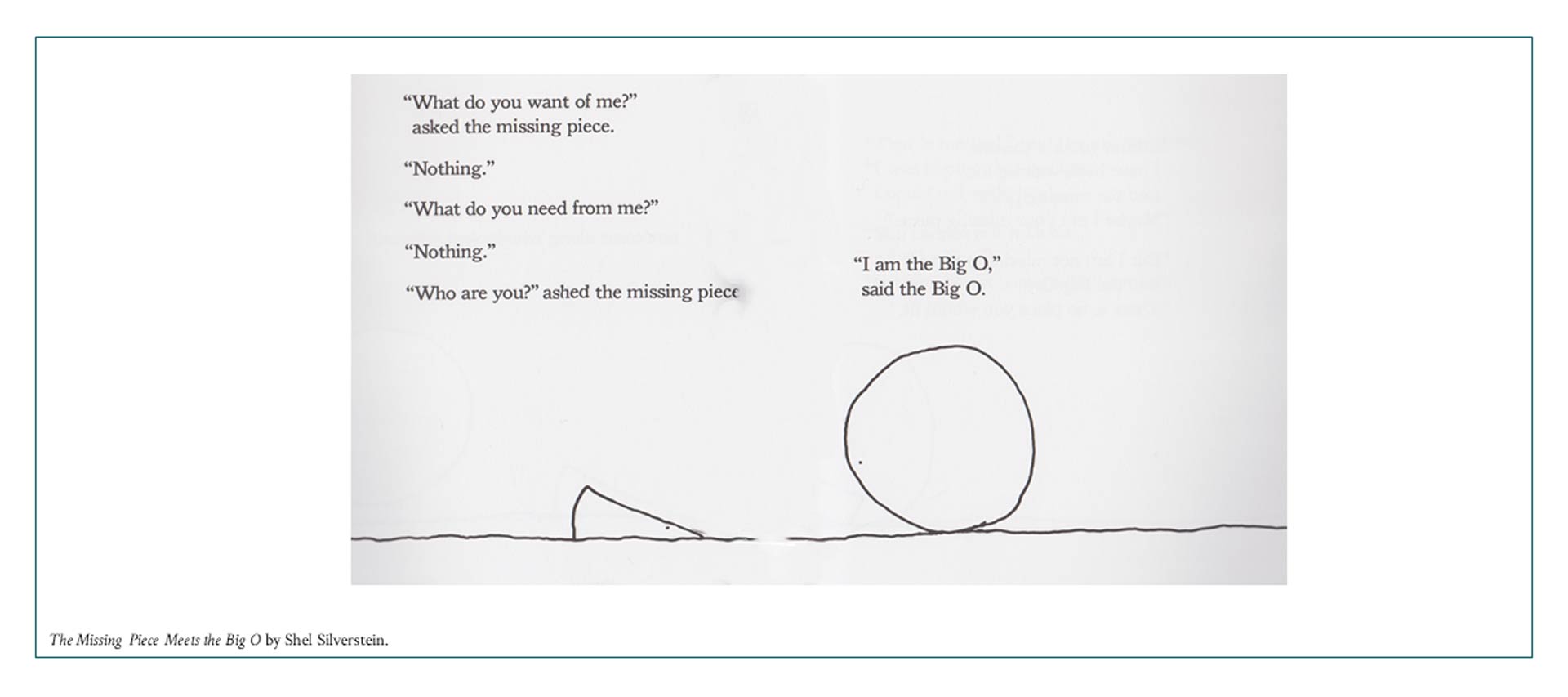
The missing piece longs to fit together with the Big O so they can roll off together. But this is not possible as the Big O is already complete. It encourages the missing piece to roll by itself. “A missing piece cannot roll by itself…I have sharp corners…I am not shaped for rolling” says the missing piece. “Corners wear off…shapes change” replies the Big O.
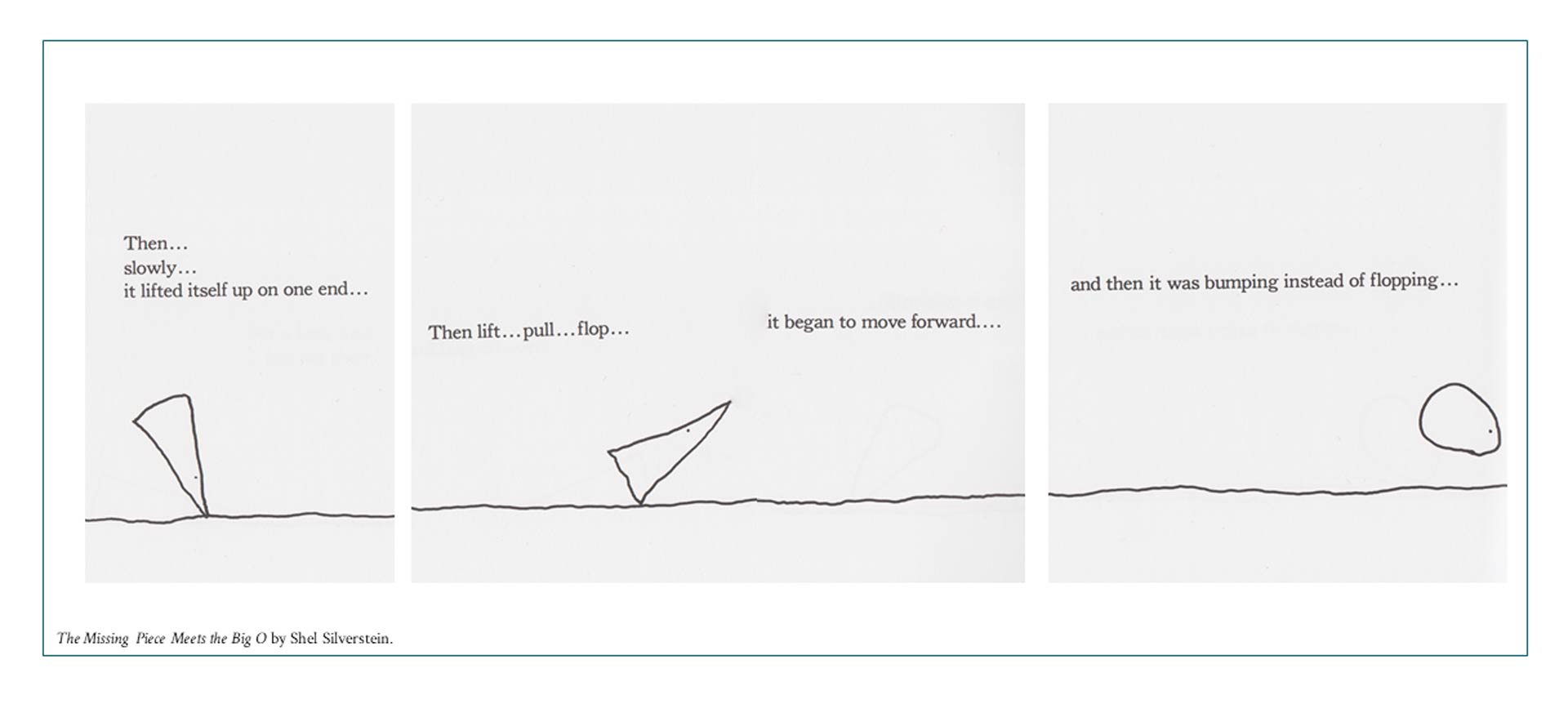 Once again, the missing piece is left alone. But this time it feels invigorated and with great effort pulls itself onto its end to plop back down again. “Liftpullflopliftpullflop”. Then something miraculous happens, the sharp corners start wearing off – the missing piece is changing. Gradually it starts to bump along, then bounce along, then roll along.
Once again, the missing piece is left alone. But this time it feels invigorated and with great effort pulls itself onto its end to plop back down again. “Liftpullflopliftpullflop”. Then something miraculous happens, the sharp corners start wearing off – the missing piece is changing. Gradually it starts to bump along, then bounce along, then roll along.
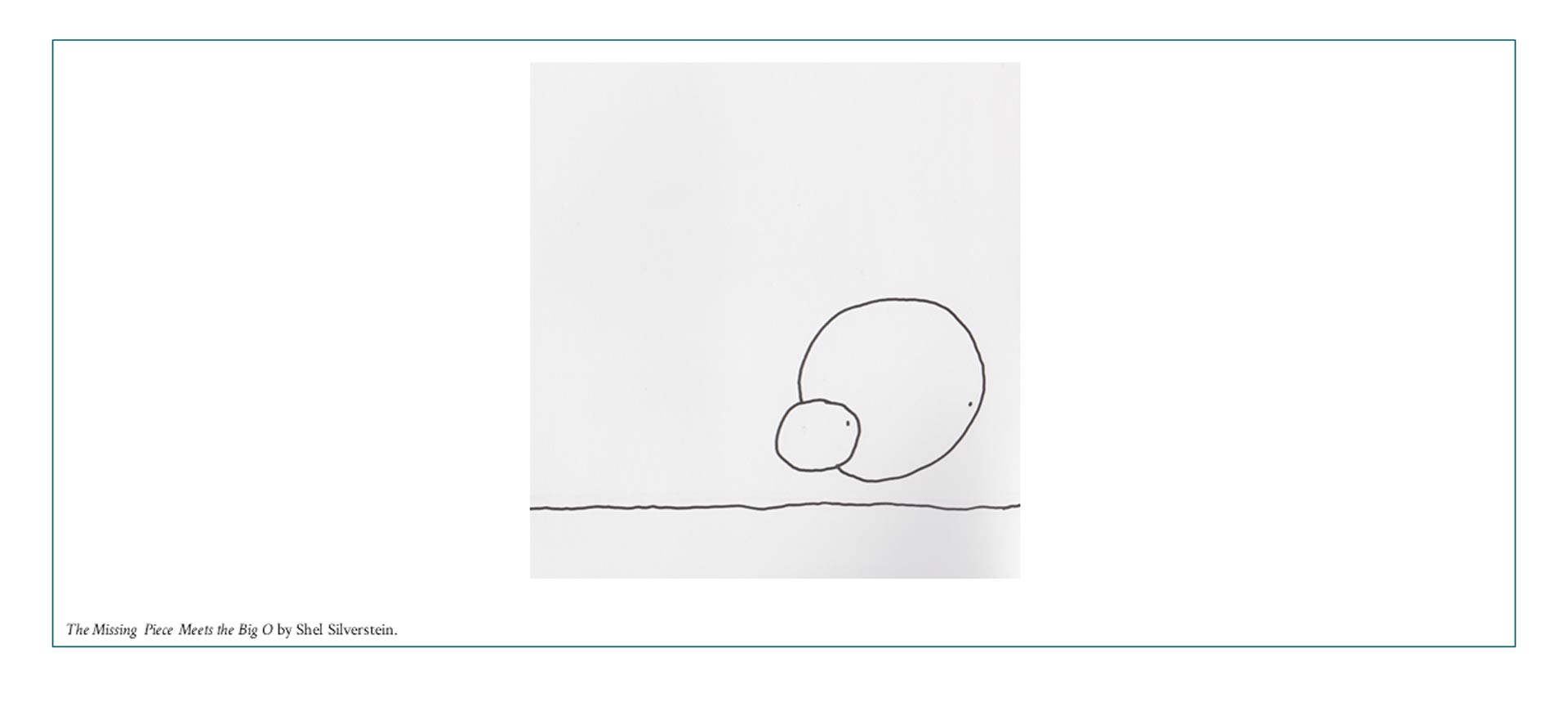
At the end of the book, the Big O mysteriously appears and the two roll off together. The healthiest love relationships occur when both parties are whole, not needing the other to complete themselves. In How to Love, Thich Nhat Hanh writes that: “When we learn to love and understand ourselves and have true compassion for ourselves, then we can truly love and understand another person.”
Each of us can learn the art of nourishing love. We will cover the topic of love more fully in our FREE online course Paths to Happiness: Live Your Best Life Story. Sign up to our newsletter today and gain access to the course once it opens.
Journal questions:
What does love mean to you? How do you show love to yourself? How do you show love to your partner? What else could you be doing to show love to those around you?
Do you recognise any of the shapes in the relationships you have had (either in your partner/ex-partner or yourself)? Contemplate this in your journal.
- The person who seems irreparably damaged
- The person who is too complicated
- The narcissist
- The overly sensitive person
- The person who worships their partner
- The person who wants everything to stay the same with no growth.
Do you see yourself in the missing piece? What would you need to do to wear off your corners and become well rounded so you no longer need anyone to complete yourself?
Back